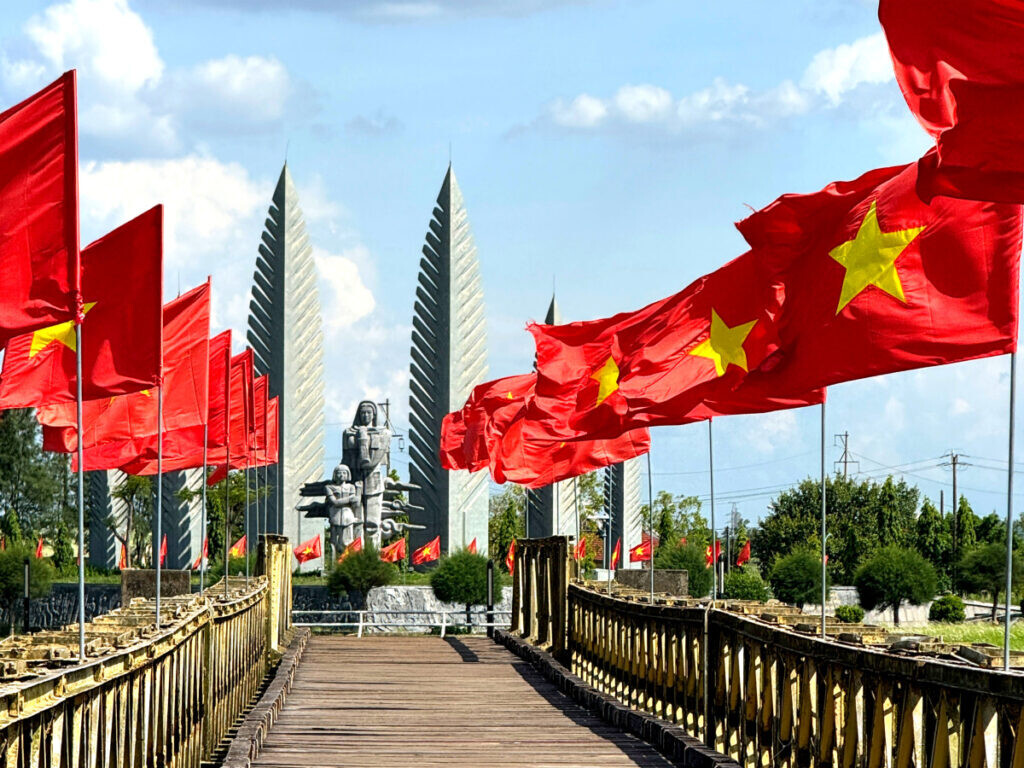
Seoul, South Korea – The initiation of trade negotiations between Vietnam and the United States, prompted by tariffs imposed by the former Trump administration, has cast a long shadow of uncertainty over numerous international businesses, particularly those with significant investments in Vietnam as an export hub. Among these concerned entities is South Korean beverage giant HiteJinro, which is strategically positioning Vietnam as its inaugural overseas production base in a bold move to globalize its flagship product, soju. The outcome of these high-stakes discussions could significantly impact HiteJinro's ambitious expansion plans in the lucrative US market.
Industry sources confirmed on the 7th that the Vietnamese government has commenced its first round of bilateral trade talks with the United States. A delegation from Vietnam reportedly arrived in the US on May 1st, signaling the urgency and importance Vietnam places on resolving the tariff dispute.
The genesis of this situation lies in the 46% reciprocal tariff slapped on all goods exported from Vietnam to the United States by the Trump administration in April. This move, part of a broader trade policy aimed at recalibrating international trade balances, sent ripples of concern throughout the global supply chain. Recognizing the potential economic fallout, the US administration granted a 90-day reprieve on these tariffs, setting a deadline for negotiations with affected nations.
Vietnam's initial response to the tariff announcement was swift and decisive. The government publicly stated its willingness to eliminate tariffs on all US products, a clear indication of its dependence on exports and the potential damage posed by the hefty 46% levy. This proactive stance underscores the economic imperative for Vietnam to secure favorable terms in the ongoing negotiations.
While the current tariff suspension provides a temporary respite, the sword of Damocles hangs over businesses with operations in Vietnam. Should the US-Vietnam trade talks fail to yield a satisfactory resolution by the July deadline, the 46% tariff will be reinstated, significantly increasing the cost of Vietnamese exports to the US. This scenario poses a considerable threat to international companies, including Korean firms, that have strategically invested in Vietnam, capitalizing on its relatively competitive labor costs and advantageous geographical location for serving global markets.
For HiteJinro, the stakes are particularly high. The company is in the midst of constructing a sprawling, technologically advanced smart factory in Bac Ninh province, Vietnam. This ambitious project, spanning an area equivalent to 11 football fields and representing an investment of approximately 106 billion KRW (roughly $77 million USD based on current exchange rates), is slated for completion in 2026. This state-of-the-art facility is envisioned as a crucial export hub, with the United States being a primary target market for its soju production, which is projected to reach an annual capacity of 5 million cases.
Currently, under the Harmonized System (HS) code classification for "distilled spirits, liqueurs and other spirituous beverages of a kind used for beverages, of an alcoholic strength by volume not exceeding 80% vol; spirits obtained by distilling grape wine or grape marc," in containers holding not more than 4 liters, imports from Vietnam to the US face no federal tariffs. However, alcoholic beverages are subject to federal excise taxes, which for distilled spirits is around $13.50 per proof gallon (equivalent to approximately $13 per liquid gallon for typical soju). The imposition of a 46% reciprocal tariff on top of this existing excise tax would render Vietnamese soju significantly more expensive in the US market, severely undermining its price competitiveness against both domestic and international rivals.
HiteJinro's strategic pivot towards overseas markets is driven by a recognition of slowing growth in its domestic South Korean market. The company has been actively pursuing international expansion, and its export figures reflect this strategic shift. In the previous year, HiteJinro's combined exports of soju and flavored spirits witnessed a substantial 10% year-on-year increase, reaching 153.4 billion KRW and accounting for 11% of the company's total revenue.
The United States stands out as a pivotal strategic market for HiteJinro's global ambitions. The company has demonstrated impressive growth in the US market in recent years, with sales steadily climbing from 25 billion KRW in 2020 to 65.2 billion KRW in the preceding year. This consistent upward trajectory underscores the potential of the US market for soju and HiteJinro's commitment to establishing a strong foothold there.
A representative from HiteJinro acknowledged the uncertainty surrounding the tariff negotiations, stating, "There are no confirmed decisions regarding the tariffs at this time. However, we are internally reviewing measures to minimize the burden on local consumers." This suggests that the company is proactively exploring various strategies to mitigate the potential impact of the tariffs, such as absorbing some of the cost increase or adjusting pricing strategies to maintain competitiveness.
The outcome of the US-Vietnam trade negotiations will have far-reaching consequences for HiteJinro's global expansion strategy. A continuation or increase in tariffs could necessitate a reassessment of its pricing models and potentially impact its market share in the crucial US market. Conversely, a favorable resolution that maintains the current tariff-free status for soju would provide a significant boost to HiteJinro's efforts to establish soju as a globally recognized and consumed beverage. The company, along with other international businesses with a stake in Vietnamese exports, will be watching the progress of these negotiations with bated breath, as the decisions made in the coming weeks will undoubtedly shape their future strategies and market prospects.
[Copyright (c) Global Economic Times. All Rights Reserved.]






























